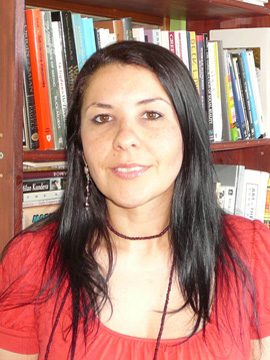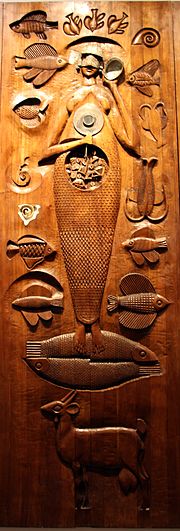Dr. Alessandra Santos, Associate Professor of Hispanic Studies at UBC, explores the dynamics of African diaspora in Brazil as expressed through art and developments in technology. She is a recipient of the SSHRC Insight Grant.
“One of the driving goals of the project is to understand the dynamics of diaspora as expressed through art and developments in technology.”
Tell us about your research.


Dr. Alessandra Santos, Associate Professor of Hispanic Studies at UBC
My SSHRC Insight Grant was awarded to conduct an ongoing project on “African Diaspora Literature, Culture and Technology in Brazil.” The focus is on literature and culture related to African Diaspora in dialogue with technology. This interdisciplinary research explores how cultural traditions have been transformed by media.
The research is interdisciplinary because it lies in the intersection of literature, media, cinema, music, and visual arts, which are examined within a strong socio-historical contextualization.
Allegedly, on August 14th, 1791, a black pig was sacrificed to the god Ogun at Bois Caiman, Haiti, in front of a few hundred insurrectionist slaves. Ogun is the warrior spirit, and in the Yoruba mythological pantheon, this god rules war, metallurgy, and technology. It may seem like the worship of Ogun is a distant memory in the history of the Haitian Revolution—the only successful slave revolt—but this project proposes that Ogun’s presence is still evident in cultural contexts. Recent developments in information technology and mass communications belong to the realm of Ogun. In that sense, to believers, every metal used for hardware, as well as every digital bit used for software, wireless signals, social media, and the internet are moved by the deity. From that perspective, this research project studies Ogun’s domain.


Carybé – Lemanjá (1968) – Museu Afro-Brasileiro
Furthermore, in Afro diasporic spiritual practices deriving from Yoruba traditions, the ocean goddess is Iemanjá, the mother goddess of all gods, the deity of motherhood and fertility, and, in some instances, of destiny. Poet Gloria Anzaldúa evokes Iemanjá as one of the avatars of diasporic communities, “the blower of fences,” where multiracial does not homogenize, but resists divisions, celebrates difference and empowers. The author offers a poetic invocation of the ocean as a space of resistance that cannot be fenced, divided, or shattered by fixed boundaries. Inspired by Anzaldúa’s poetic invocation, my project approaches case studies that work as vectors for discussing race, directly and indirectly, in heterogeneous networks of culture in mixed diasporic communities in Brazil.
What questions do you seek to address?
One of the driving goals of the project is to understand the dynamics of diaspora as expressed through art and developments in technology. The project seeks to update ideas of culture interchange in relation to the consolidation of technological forms and their impact on cultural production. The main research questions are: How have the socio-historical specificities of Brazil impacted diasporic traditions? What clashes and tensions occur when specific traditions and cultural memory encounter new modes of communication through media? What are the dynamics of racial politics in the works studied?
What makes this topic compelling?
The research’s innovation lies in the need to re-examine ancient traditions in the presence of media technologies, and new ways to disseminate knowledge and to incorporate such practices in literature and art. The study probes how questions of race and ethnicity are directly related to power dynamics and class relations as evident through literature and media. The works studied directly address social issues and the results will be of interest to both the academic community and to the general public.
The research creates knowledge by identifying the current state of diaspora in Brazil, particularly in relation to pressing social issues of race relations and social inequalities.
The project also contributes to student mentoring and training in intercultural relations, and to creating new research methods that seek cross-fertilization across disciplines through teaching, graduate student workshops, and a research website. Finally, the project seeks to establish a bridge between experiential learning and scholarly learning through direct engagement with diasporic awareness and community building.
Dr. Alessandra Santos is a recipient of the Insight Grant by the Social Sciences and Humanities Research Council (SSHRC), which enables scholars to address complex issues pertaining to individuals and societies, and to further our collective understanding. Learn more.


